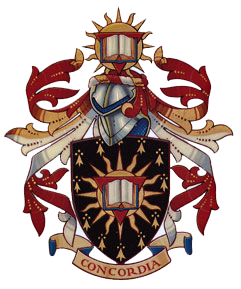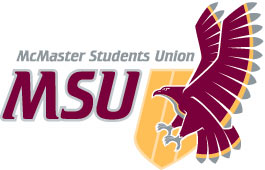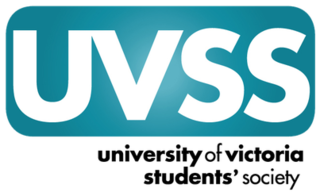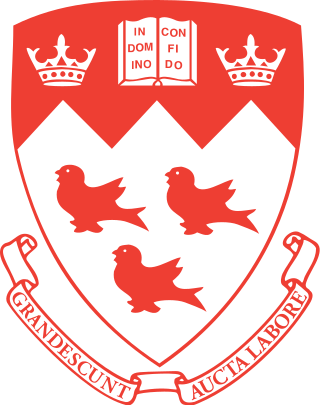
Concordia University is a public research university located in Montreal, Quebec, Canada. Founded in 1974 following the merger of Loyola College and Sir George Williams University, Concordia is one of the three universities in Quebec where English is the primary language of instruction. As of the 2020–21 academic year, there were 51,253 students enrolled in credit courses at Concordia, making the university among the largest in Canada by enrollment. The university has two campuses, set approximately 7 kilometres apart: Sir George Williams Campus is the main campus, located in the Quartier Concordia neighbourhood of Downtown Montreal in the borough of Ville Marie; and Loyola Campus in the residential district of Notre-Dame-de-Grâce. With four faculties, a school of graduate studies and numerous colleges, centres and institutes, Concordia offers over 400 undergraduate and 200 graduate programs and courses.

The Canadian Federation of Engineering Students (CFES) is the national association of undergraduate engineering student societies in Canada and exists to organize activities, provide services and interact with professional and other bodies at the national and international level for the benefit of Canadian engineering students. The organization is a bilingual non-profit corporation based in Ottawa, Ontario, Canada, managed by a volunteer team of engineering students and recent graduates from across Canada.

The University of Sherbrooke (UdS) is a large public French-language university in Quebec, Canada with campuses located in Sherbrooke and Longueuil, a suburb of Montreal approximately 130 km (81 mi) west of Sherbrooke. It is one of two universities in the Estrie region of Quebec, and the only French-language university for the region.
A students' union, also known by many other names, is a student organization present in many colleges, universities, and high schools. In higher education, the students' union is often accorded its own building on the campus, dedicated to social, organizational activities, representation, and academic support of the membership.
The Alma Mater Society of Queen's University, otherwise known as the AMS, is the central undergraduate student association at Queen's University at Kingston in Kingston, Ontario, Canada. It is the oldest organization of its kind in Canada. Its roots lie in the old Dialectic Society, which created the AMS in 1858. The society seeks to represent and facilitate the student experience, whether it is through a multitude of clubs, services, governance or volunteer opportunities.

The Canadian Federation of Students (CFS) is the largest student organization in Canada, representing over 530,000 students from across Canada. Formed in 1981, the stated goal of the Federation is to represent the collective voice of Canadian students and work at the federal level for high quality, accessible post-secondary education. The CFS has its roots in Canada's long tradition of having national student organizations, such as formerly the National Union of Students (Canada), the Canadian Union of Students, the National Federation of Canadian University Students, the Canadian Student Assembly, and the Student Christian Movement of Canada (SCM).

The McMaster Students Union (MSU), is the central undergraduate student government at McMaster University, in Hamilton, Ontario, Canada.

The University of Victoria Students' Society (UVSS) is a student society that represents undergraduate students at the University of Victoria. The students' society was founded in 1921 and incorporated in 1964. It provides services and operates business for students through the Student Union Building (SUB), and historically has advocated for special interests on campus.
The Student Federation of the University of Ottawa was the official students' union representing undergraduate students of the University of Ottawa from 1969 to 2018.
The University of Toronto Students' Union (UTSU), legally known as the Students' Administrative Council of the University of Toronto, Inc., is the representative student government of full-time undergraduate students at the University of Toronto - St. George campus. It is Canada's second largest student union and the third largest in North America.
The Alma Mater Society of the University of British Columbia Vancouver, otherwise referred to as the Alma Mater Society or the AMS, is the student society of UBC Vancouver and represents more than 58,000 undergraduate and graduate students at UBC's Vancouver campus and their affiliated colleges. The AMS also operates student services, businesses, resource groups and clubs. The AMS is a non-profit organization that exists to advocate for student viewpoints and ensure the needs of students are met by the University Administration and the Provincial and Federal governments. The Alma Mater Society is composed of a number of constituency organizations for undergraduate students, and works closely with the Graduate Student Society of UBC.
York Federation of Students (YFS) represents approximately 50,000 students at York University in Toronto, Ontario, Canada. The York Federation of Students (YFS) is a member of the Canadian Federation of Students.
Engineering Undergraduate Society (EUS), is the engineering society at the University of British Columbia. It organizes Engineering department events but is perhaps best known for practical jokes it has played in the past, including hanging the frame of a Volkswagen Beetle off bridges. The members of the EUS are known for their pride of being engineering students and conspicuous displays thereof. EUS members often refer to themselves as Engineers even though they are correctly Engineering Students.

The Faculty of Education is a constituent faculty of McGill University, offering undergraduate and graduate degrees and professional development in education.
The Desautels Faculty of Management is a faculty of McGill University in Montreal, Quebec, Canada. The faculty offers a range of undergraduate and graduate-level business programs, including the Bachelor of Commerce, Master of Business Administration and Doctor of Philosophy in management degrees. The Faculty of Management also offers a joint MBA/Law program with McGill's Faculty of Law.

McGill University is an English-language public research university located in Montreal, Quebec, Canada. Founded in 1821 by royal charter granted by King George IV, the university bears the name of James McGill, a Scottish merchant whose bequest in 1813 formed the university's precursor, University of McGill College ; the name was officially changed to McGill University in 1885.
The McGill Tribune is an independent campus newspaper published by the Tribune Publication Society in Montreal, Quebec, Canada. The Tribune has been entirely student-run since its foundation in 1981, and has a good reputation for unbiased and trustworthy reporting. The Tribune covers a variety of different subjects, including but not limited to news, opinion, student life & features, arts & entertainment, science & technology, and sports. It has a print circulation of 2,000 between McGill's downtown and Macdonald campuses. It publishes once a week on Tuesdays in print, with additional daily content online.
The Central Student Association is the student union for all undergraduate students at the University of Guelph.
The Table de concertation étudiante du Québec is a federation of students' unions formed in 2009. As of April 23, 2012, while the 2012 Quebec student protests, it comprises 60,000 students grouped into four member unions; by March 23, 2014, after many disaffiliation, it comprises 28,000 members, part of only one member union. Unlike the FEUQ or the Association pour une solidarité syndicale étudiante, it does not charge fees from students within their member unions for funding.
The Student Federation of the University of Ottawa was the student union representing undergraduate students at the University of Ottawa.









